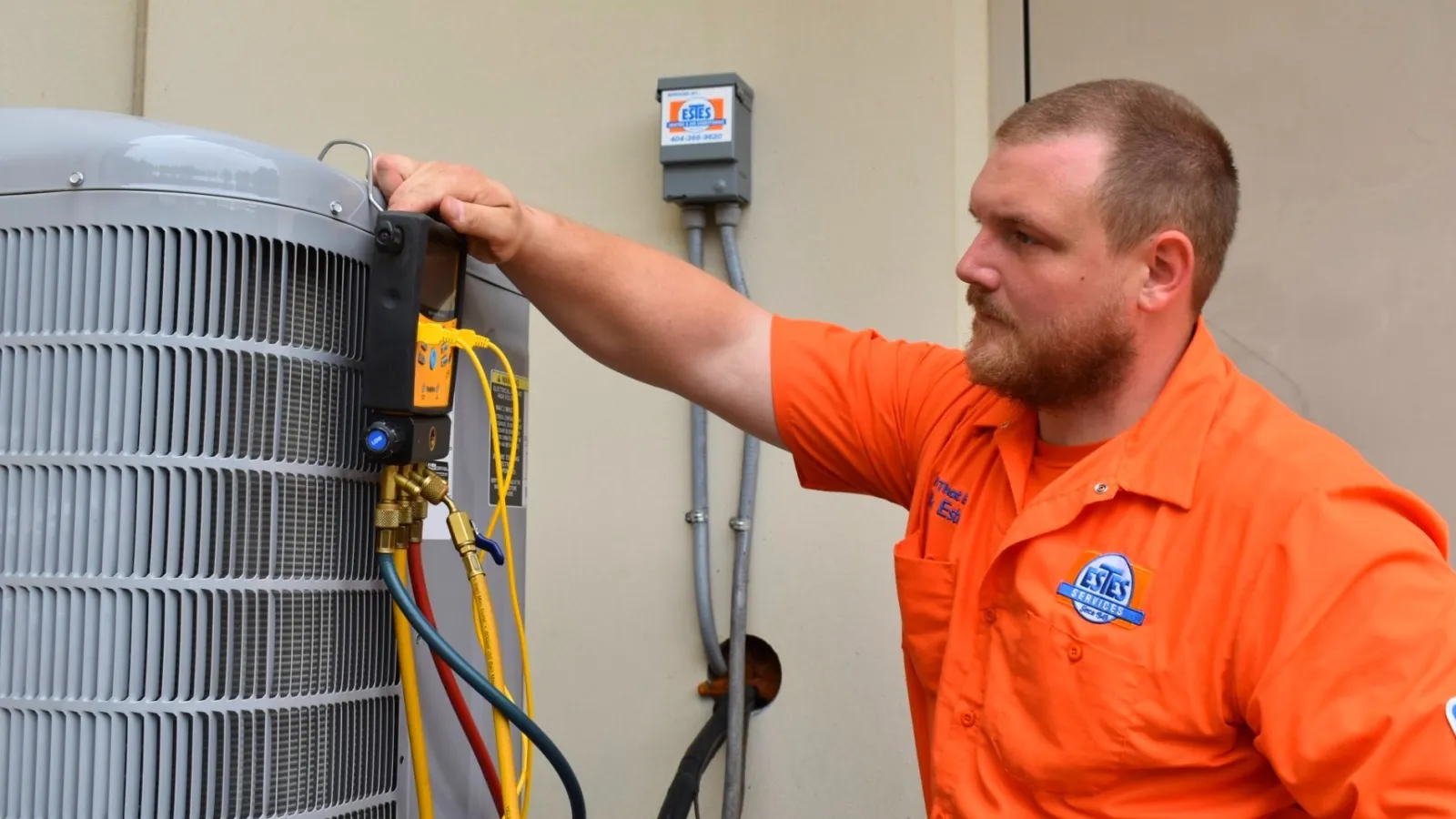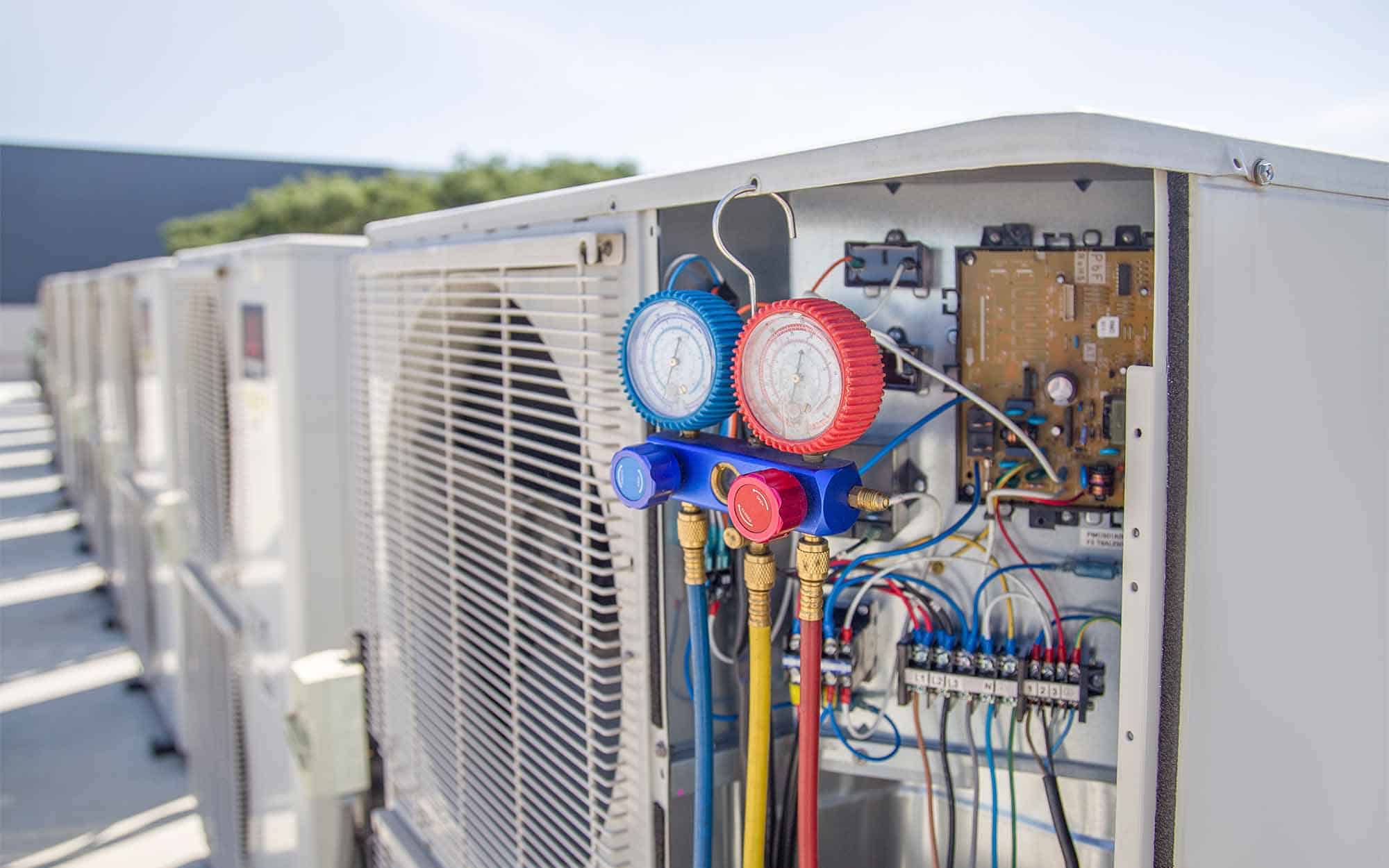Picking In Between a Heat Pump and Furnace: Key Considerations for Your Cooling And Heating Demands
When evaluating heating options for HVAC needs, the decision in between a heatpump and a heating system can be complex. Each system offers distinct advantages customized to details climates and power effectiveness goals. Understanding these differences is vital for making an educated choice. Key variables such as installment expenses and environmental influence better make complex the choice process. Which option truly straightens with one's convenience and sustainability preferences? The following areas will explore these factors to consider in information.
Comprehending Warm Pumps: How They Function and Their Benefits
While many home owners think about various home heating choices, understanding just how heatpump feature and their benefits can significantly affect their decision. Heatpump operate by moving heat instead than creating it. In the winter, they remove heat from the outdoors air or ground and move it inside your home, while in the summer season, they reverse this process, cooling down the home by removing warm outside. This dual performance makes them versatile for year-round climate control.One of the key benefits of warm pumps is their power effectiveness. They use significantly much less electrical power contrasted to traditional furnace, possibly resulting in lower energy costs (heat pump service). In addition, heatpump have a smaller carbon footprint, making them an eco pleasant choice. They likewise call for less upkeep than conventional systems, contributing to long-lasting expense savings. In general, recognizing the technicians and benefits of heatpump can assist property owners make notified choices concerning their home heating and cooling down requirements
Discovering Heaters: Kinds, Procedure, and Benefits
Heaters can be found in various types, including gas, electric, and oil versions, each with distinctive functional devices. Recognizing these distinctions is crucial, as they influence performance and home heating performance. Additionally, furnaces offer numerous advantages, such as regular warm outcome and dependability in colder environments.
Kinds of Furnaces
Heater can vary considerably in layout and procedure, with heating systems being a popular choice amongst house owners. There are a number of sorts of furnaces, each making use of different fuel resources and innovations. Gas furnaces prevail, leveraging gas to generate warm efficiently. Electric heaters, on the other hand, make use of electric resistance to create heat, usually preferred for their straightforward installment. Oil furnaces, while much less common, are reliable in areas with minimal gas gain access to (heat pump installation ooltewah tn). Furthermore, condensing heaters maximize energy performance by capturing and recycling exhaust gases. Each kind operates via a system of heat exchangers and ductwork to distribute warm air throughout a home. Comprehending the differences between these heater types is crucial for informed a/c choices
Advantages of Furnaces
For house owners looking for dependable heat throughout cold months, the advantages of heating systems are substantial. Furnaces offer regular home heating, guaranteeing even temperature levels throughout the home. They are specifically effective in extreme cool, commonly outperforming warm pumps in icy problems. Numerous kinds, consisting of gas, electrical, and oil heaters, offer flexibility to meet diverse needs and preferences.Furnaces also have a tendency to have lower initial installation prices contrasted to warmth pumps, making them an extra accessible option for many. Their robust layout adds to a much longer life expectancy, with numerous units lasting over 15 years with proper maintenance. Additionally, modern heaters are often equipped with innovative modern technology for boosted effectiveness, which can result in decreased energy costs. On the whole, heaters continue to be a dependable choice for efficient home heating.

Energy Efficiency: Contrasting Warmth Pumps and Furnaces
When contrasting power performance in between warm pumps and heating systems, the Seasonal Energy Efficiency Ratio (SEER) plays a crucial duty in figuring out performance. Additionally, an operational price evaluation exposes the long-term economic effects of each system. Comprehending these variables can direct property owners in making informed choices regarding their heating solutions.
Seasonal Power Effectiveness Proportion
Energy efficiency plays an essential duty in the decision-making process between heat pumps and heaters, especially when considering the Seasonal Power Effectiveness Ratio (SEER) This statistics steps the cooling performance of warm pumps over an entire air conditioning period, supplying a standardized method to assess efficiency. Greater SEER ratings show greater power efficiency, equating to reduced power consumption and minimized utility expenses. In comparison, furnaces are generally assessed utilizing the Yearly Fuel Utilization Efficiency (AFUE) ranking, which reflects home heating effectiveness. When comparing these 2 systems, homeowners should focus on SEER rankings for warm pumps, as they straight influence overall energy financial savings and ecological sustainability. An extensive understanding of SEER can notably influence the lasting complete satisfaction and cost-effectiveness of the chosen heating and cooling remedy.
Functional Price Evaluation
Understanding the operational expenses connected with warmth pumps and furnaces is important for house owners evaluating their options. Warm pumps commonly offer higher energy efficiency, converting electrical power right into warmth with marginal waste. This causes reduced monthly energy costs, specifically in modest environments. Alternatively, typical heaters, specifically gas versions, might have reduced in advance expenses however can incur higher operational expenses over time due to fuel rates and performance ratings.Moreover, warmth pumps can operate as both home heating and cooling systems, potentially reducing the requirement for separate heating and cooling units. While initial financial investments for heatpump might be higher, their long-term financial savings in energy efficiency can make them a more cost-efficient selection for lots of homes. Careful evaluation of regional energy prices is vital to figure out the most effective option.
Installment Costs: What to Anticipate for every Heater
Installment costs for heater can vary considerably in between heat pumps and heaters, influencing home owners' decisions. Heatpump typically have higher ahead of time setup prices, normally ranging from $3,500 to $8,000, depending upon the unit size and intricacy of installment. This includes the outside system, interior handling system, and required ductwork alterations. Conversely, heaters tend to have lower first costs, averaging in between $2,500 and $6,000, which can be appealing for budget-conscious homeowners. Nevertheless, installation expenses can boost if extensive ductwork is required.Moreover, the choice of fuel kind for heaters-- all-natural gas, propane, or electric-- can likewise affect installment prices. While warmth pumps use energy efficiency, their preliminary financial investment might discourage some purchasers. Eventually, reviewing installment costs alongside long-term savings and efficiency will certainly aid homeowners in making informed choices concerning their furnace.
Environment Factors To Consider: Which System Does Better in Your Area
How do environment problems influence the effectiveness of heating unit? The efficiency of warm pumps and furnaces can differ substantially relying on the regional climate. In modest environments, heatpump excel by successfully moving heat from the outdoors air, making them an energy-saving choice. Their performance reduces in incredibly cool temperature levels, where they may battle to extract adequate warmth. On the other hand, furnaces, specifically gas designs, provide consistent and trusted warm regardless of outside problems, making them more suitable in cooler regions.In areas that experience milder wintertimes, heatpump can run properly year-round, offering both cooling and heating. In contrast, areas with harsh wintertimes often take advantage of the toughness of heaters. Eventually, recognizing the local climate is crucial when choosing between a warmth pump and a heater, as it straight affects their operational effectiveness and overall efficiency.
Maintenance Requirements: Long-Term Look After Warm Pumps vs. Furnaces
While both warm pumps and furnaces call for normal maintenance to assure peak efficiency, their certain needs and treatment routines differ substantially. Heating systems normally need much less regular attention, with yearly assessments sufficing to examine for gas leakages, tidy filters, and examine overall capability. Their easier design usually enables straightforward repairs.In comparison, heat pumps demand biannual upkeep due to their double role in cooling and heating. This includes cleansing coils, checking refrigerant degrees, and guaranteeing that both the interior and exterior devices work at their ideal. Additionally, heatpump upkeep commonly involves more complex parts, making specialist servicing essential.Neglecting maintenance can cause diminished effectiveness and increased energy prices for both systems. Inevitably, property owners need to consider these long-lasting treatment needs when picking between a warm pump and a heating system, as positive upkeep can expand the life-span and performance of either system considerably.
Environmental Effect: Selecting a Lasting Home Heating Alternative
The ecological influence of furnace is a vital evaluation for property owners looking for sustainable choices. Warm pumps are normally a lot more energy-efficient than typical furnaces, as they move warm instead of produce it, substantially lowering carbon exhausts. By making use of renewable resource sources, such as geothermal or air-source heat pumps, property owners can further lessen their environmental footprint.On the various other hand, gas furnaces give off greenhouse gases and add to air contamination, though they usually give greater heat output. Nonetheless, innovations in innovation have led to the growth of high-efficiency heating systems that minimize emissions.Ultimately, picking a home heating system includes weighing performance against ecological impact. Property owners are urged to assess neighborhood energy resources and motivations for sustainable systems, making sure an option that aligns with both personal comfort and environmental responsibility. The choice influences not just instant comfort however likewise long-lasting sustainability and environmental health.
Regularly Asked Inquiries
How Much Time Do Warmth Pumps and Furnaces Usually Last?
The life-span of warmth pumps generally ranges from 15 to two decades, while heaters can last between 15 to three decades. Normal upkeep considerably affects their longevity and click for more info effectiveness in giving home heating options.
Can I Utilize a Warm Pump in Extremely Cold Climates?
Heatpump can operate in incredibly chilly environments, yet their effectiveness lessens as temperatures decrease. In such conditions, additional home heating resources may be required to maintain comfortable indoor temperature levels and ensure peak efficiency.

What Is the Noise Level of Warm Pumps Versus Furnaces?
The sound levels of heat pumps and heating systems differ substantially. Generally, warm pumps operate more quietly than standard heaters, making them preferable for those delicate to sound, while heating systems may create louder functional sounds throughout home heating cycles.
Are Heat Pumps Suitable for Both Cooling And Heating?
Heatpump are undoubtedly appropriate for both heating & cooling (furnace replacement). They work by moving warm, offering effective temperature control year-round, making them a versatile choice for property owners seeking an all-in-one HVAC solution
What Dimension Furnace Do I Need for My Home?
Identifying the appropriate dimension home heating system for a home needs assessing factors such as square footage, insulation top quality, regional climate, and the home's format. Consulting a specialist can ensure an accurate analysis and suitable convenience. Heat pumps typically supply higher power effectiveness, converting electrical energy right into warm with minimal waste. In moderate climates, heat pumps succeed by effectively moving warm from the outdoors air, making them an energy-saving choice. Conversely, heaters, especially gas versions, offer reliable and constant heat no matter of outdoor problems, making them better in chillier regions.In locations that experience milder winters, warm pumps can run efficiently year-round, giving both heating and air conditioning. Warmth pumps are typically read this extra energy-efficient than conventional Visit Website heating systems, as they move heat rather than produce it, greatly decreasing carbon exhausts. By utilizing renewable energy resources, such as air-source or geothermal heat pumps, property owners can better lessen their ecological footprint.On the other hand, natural gas heating systems emit greenhouse gases and contribute to air pollution, though they typically supply greater warmth result.
Comments on “Everything You Should Know Before Buying ductless mini splits”